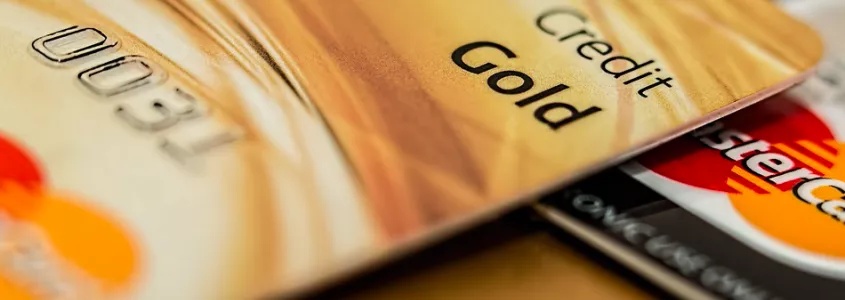
The offence of forgery, due to its overtly technical nature, is not very well understood, at least not accurately, by most people. In order to fully understand it, it is necessary to know exactly what certain concepts in criminal law mean. For this reason, here we are going to try to clear up any doubts you may have in this regard.
But, first of all, we do not want to go any further without telling you that everything concerning the crime of false documentation can be found in Chapter II of Title XVIII of Organic Law 10/1995, of 23 November, of the Criminal Code. In fact, everything that appears here has been written on the basis of what appears in this legal text.
Types of forgery depending on the document on which it is carried out.
Within the legislation mentioned in the previous paragraph, there are four variants of the offence of forgery. These are fundamentally differentiated by the type of document on which they are made. This is what the Penal Code says about each one:
Forgery of official, commercial and public documents, as well as of dispatches transmitted by telecommunications services.
This variant of the Penal Code is applicable to civil servants and authorities as they are the ones who can falsify public, official and commercial documents. Specifically, it is specified that those found guilty of this offence will face prison sentences of between 3 and 6 years and fines of between 6 and 24 months. To this should be added a special disqualification for a period of between 2 and 6 years. Undoubtedly, quite harsh punishments.
But what must the subject do in order to be considered guilty of the offence of false documentation? The law establishes the following:
- Altering the requirements or essential elements of an official, public or commercial document.
- Consciously stating facts untruthfully.
- Simulating a document in whole or in part with the purpose of misleading as to its authenticity.
- Assuming that people have taken part in an act when they have not, as well as attributing to those who have taken part statements or declarations that do not correspond to reality.
A clarification must be made at this point. Although this point of the law refers to public officials, the fact is that, although it is more complicated, the offence of false documentation of this type can also be committed by a private individual. In this sense, the text states that, if this happens, the guilty party will face prison sentences ranging from 6 months to three years and fines of between 6 and 12 months.
Falsification of private documents
This particular variant is contained in Article 395 of the Criminal Code. Specifically, the definition is almost identical to the previous case, except that it refers exclusively to public, not private, documents. Committing this offence carries a prison sentence of between 6 months and 2 years.
As it does not concern public documents and is not an offence committed by an authority or at least a public official, the penalties for its commission are much lower than in the previous case. Moreover, it always affects private individuals. In fact, it is specifically drafted for them.
Forgery of certificates
Organic Law 10/1995 of the Criminal Code also refers to the falsification of certificates. In this case, as in the case of falsification of official, commercial and public documents, as well as of dispatches transmitted by telecommunications services, it can be committed by practitioners, authorities, civil servants and private individuals.
In the case of medical practitioners, forgery of any certificate can lead to fines of between 3 and 12 months. Similarly, in the case of public officials and authorities who commit this offence, they may face suspension of their activity for a period of between 6 months and 2 years. In addition, certificates related to social security and taxation are excluded from these penalties.
Counterfeiting of debit and credit cards and traveller's cheques
This is the last point referred to in the chapter on forgery of documents in the Penal Code. Specifically, it can be found perfectly defined in article 399bis, which states that the reproduction, copying, alteration or falsification of any other type of debit or credit cards or travellers' cheques will be punished with prison sentences of between 4 and 8 years.
In addition, the penalty will be imposed in its upper half when the counterfeiting affects a group of persons or when it is committed within the framework of a criminal organisation that engages in this type of activity. In all other cases, such as that of a private individual, the lower half will be applied.
Some conclusions on the offence of false documentation
As is evident from a review of the provisions of the Criminal Code regarding false documentation, it is a particularly serious offence punishable by prison sentences and very high fines. In fact, these are in line with the rest of the forgeries contemplated in this legal text and in criminal law as a whole, such as those of currency or materials, for example.
Since the Penal Code generally makes distinctions in penalties depending on the subject who carries them out or the involvement of criminal organisations or private individuals, each case is different. In this sense, it is of vital importance to have the advice of a lawyer specialised in the matter who studies the case in depth and determines an effective defence strategy.
We hope we have been of help to you in resolving any doubts you may have regarding the Criminal Code's provisions on the offence of false documentation. If you have any questions, please do not hesitate to contact us.

"Anywhere in Spain"
With our online appointment system you will have immediate advice without the need for face-to-face visits or travel.
One of our lawyers specialized in your area of interest will contact you to formalize an appointment and make your consultation by video call.

Add new comment